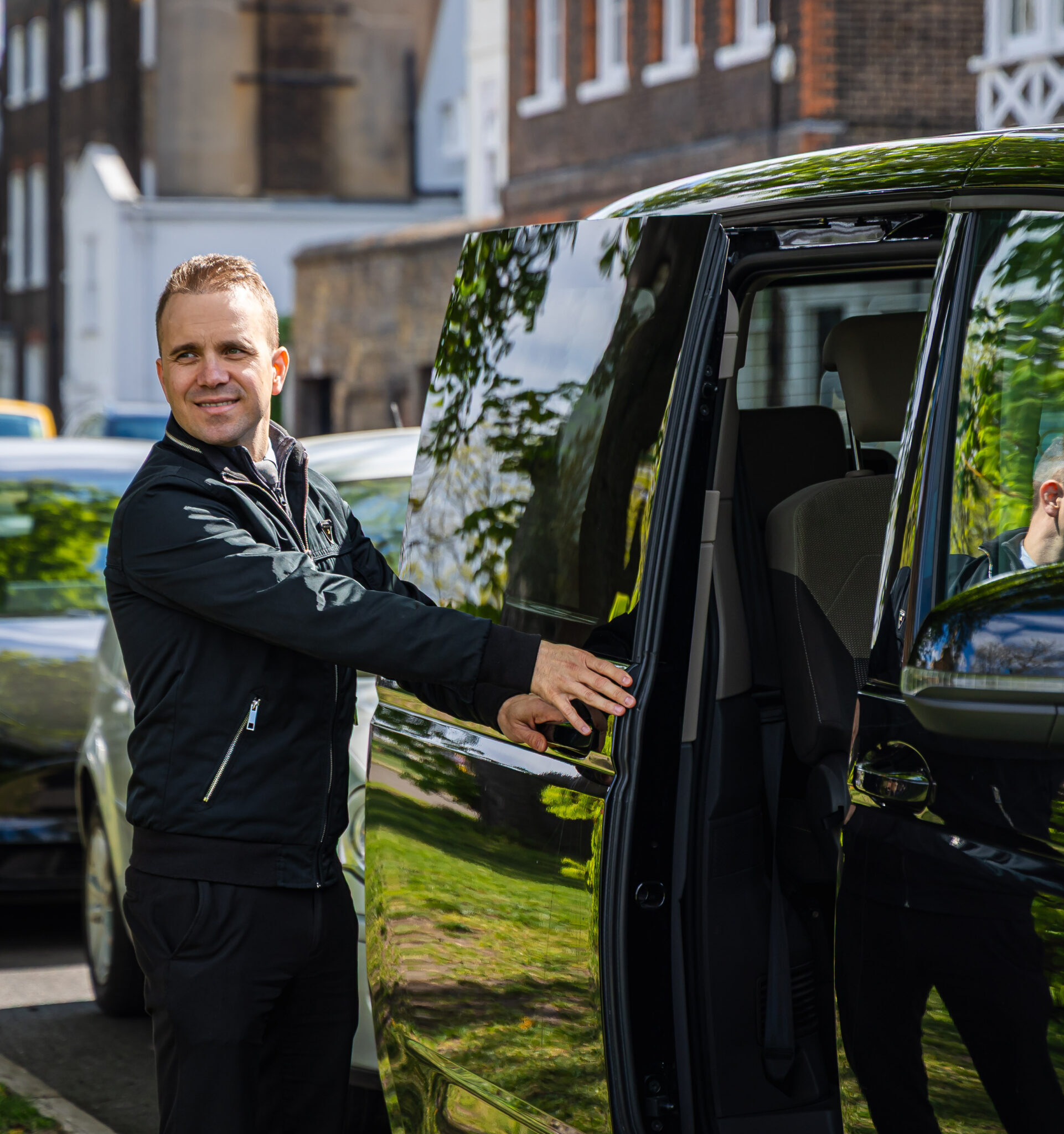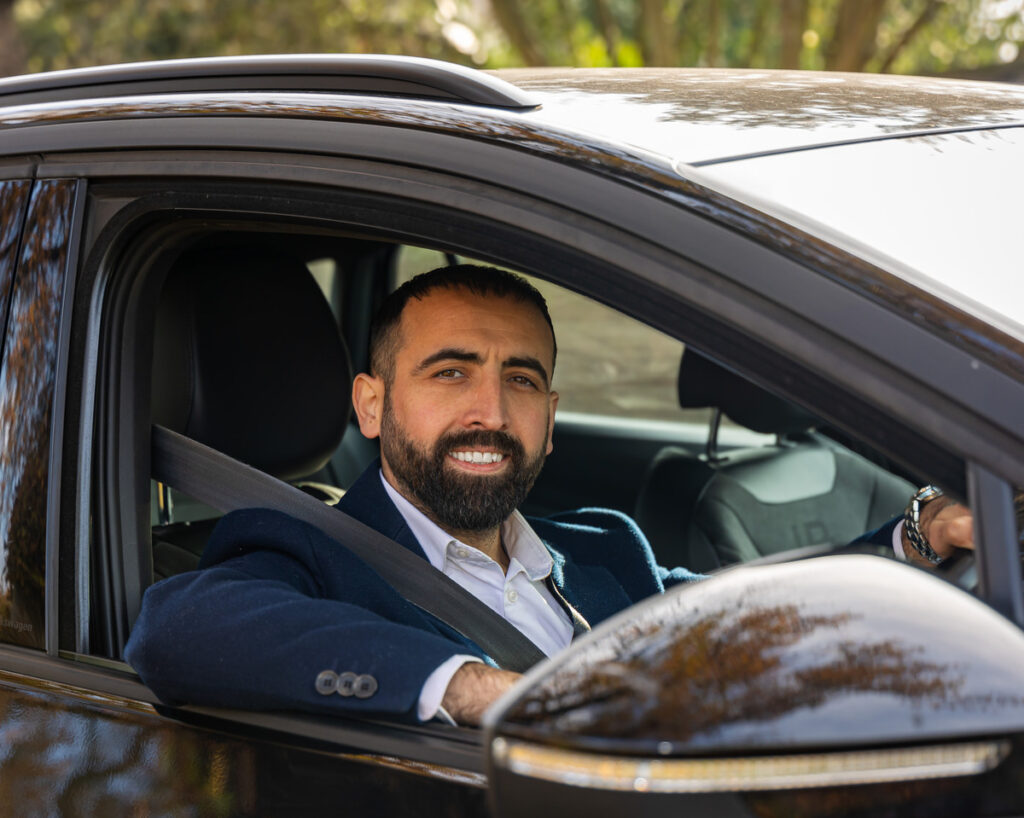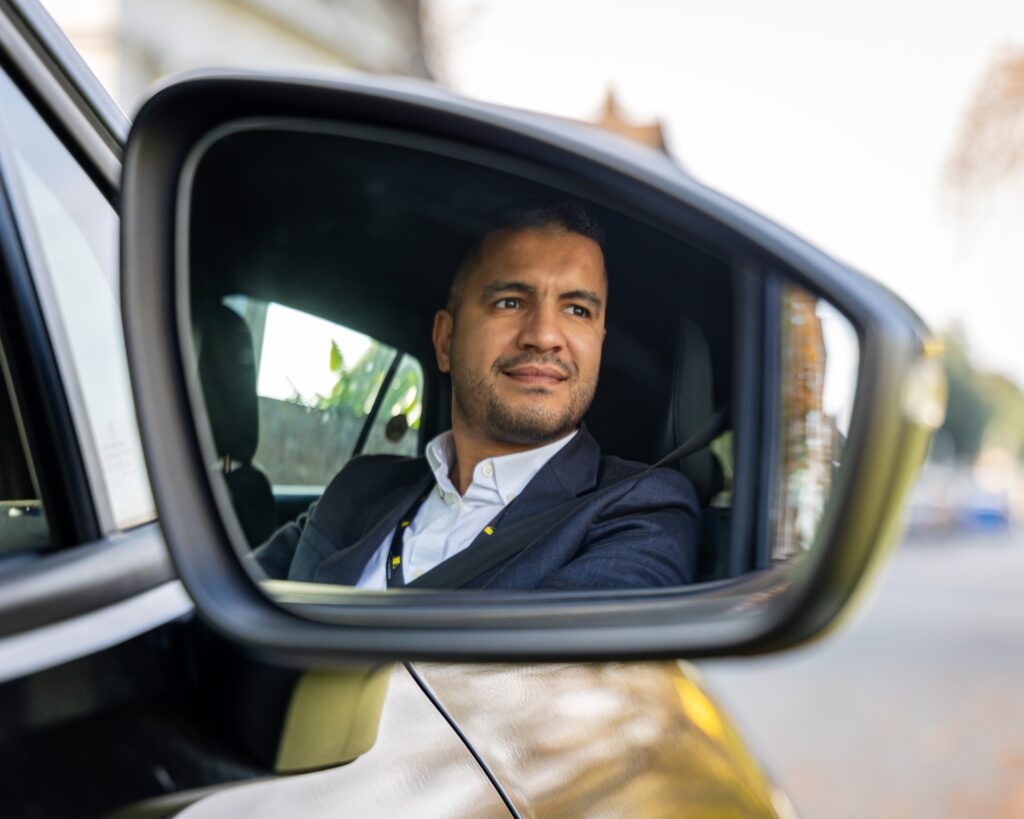
Supporting Passengers with Accessibility Needs: A Guide For Private Hire Drivers
Our aim is always to ensure every passenger, regardless of their mobility or sensory needs, feels comfortable and respected. Providing an inclusive and accessible service isn’t just about meeting legal requirements after all. Knowing how to assist passengers with disabilities can make a huge difference to their experience.
Legal Requirements & Addison Lee’s Accessibility Standards
As a private hire driver, you have a legal obligation to assist passengers with disabilities under the Equality Act 2010. This means:
- Always accepting assistance dogs – Guide Dogs and other service animals must be allowed in your vehicle, with no additional charge.
- Providing reasonable assistance – This includes helping with wheelchairs or mobility aids if needed.
- Never overcharging – Passengers with accessibility needs must not be charged more for their journey.
At Addison Lee, we ensure our drivers are equipped to support TaxiCard passengers, providing affordable, subsidised travel for people with disabilities.

Assisting Passengers with Wheelchairs or Mobility Aids
When transporting passengers using wheelchairs or mobility aids, communication and patience are key.
Best Practices:
- Ask how they’d like to be assisted – some passengers prefer to transfer into the vehicle, while others may stay in their wheelchair.
- Ensure secure storage. If a wheelchair or mobility aid is folded and stored in the boot, make sure it’s secure and handled with care.
- Park safely – Find a drop-off spot that allows for easy access to their destination.
What NOT to do:
- Never assume a passenger needs assistance – always ask first.
- Avoid rushing the process – take your time to ensure safety.
- Don’t move a mobility aid without asking.

Communicating with Passengers with Hearing or Vision Impairments
Some passengers may have hearing or vision impairments, requiring small but important adjustments in how you communicate.
For passengers with hearing impairments:
- Face the passenger when speaking, and speak clearly.
- Consider using written communication if necessary.
- Confirm their destination before starting the trip.
For passengers with vision impairments:
- Offer verbal descriptions of the journey (e.g., letting them know when you’ve arrived).
- Guide them to the vehicle safely if assistance is needed.
- Ensure their Guide Dog is accommodated comfortably.
At Addison Lee, we ensure that our drivers are trained to accommodate TaxiCard account holders, many of whom may have additional accessibility needs.

Dos and Don’ts for an Inclusive & Respectful Service
DO:
- Always treat passengers with respect and dignity.
- Communicate directly with the passenger rather than any companions.
- Ensure passengers have enough time to exit safely.
DON’T:
- Assume what assistance they need – always ask first.
- Rush the process – be patient and considerate.
- Charge extra for accessibility services – this is illegal.
Driving Towards a More Inclusive Future
At Addison Lee, we are proud to support accessibility initiatives like TaxiCard, ensuring that every passenger receives a professional, reliable and inclusive service.
By following these best practices, you can help create a better experience for all passengers while maintaining the high service standards expected of Addison Lee drivers.
Want to drive with a company that values accessibility and professionalism? Join Addison Lee today and be part of a team that prioritises inclusivity, reliability and top-tier service.











